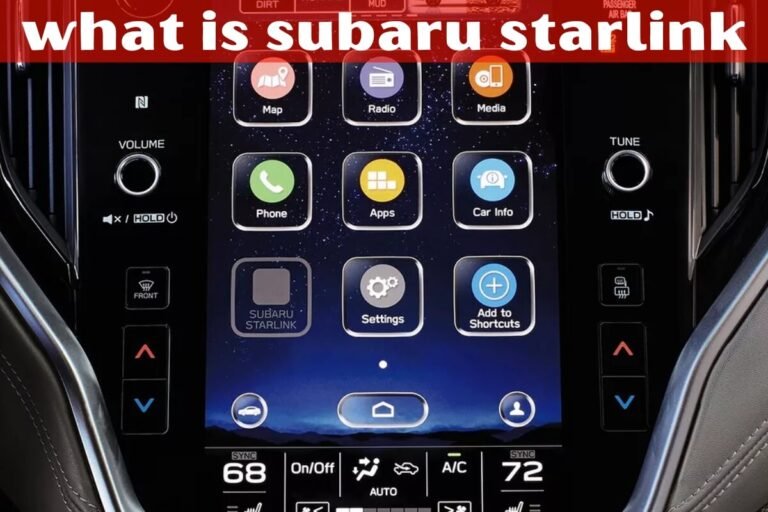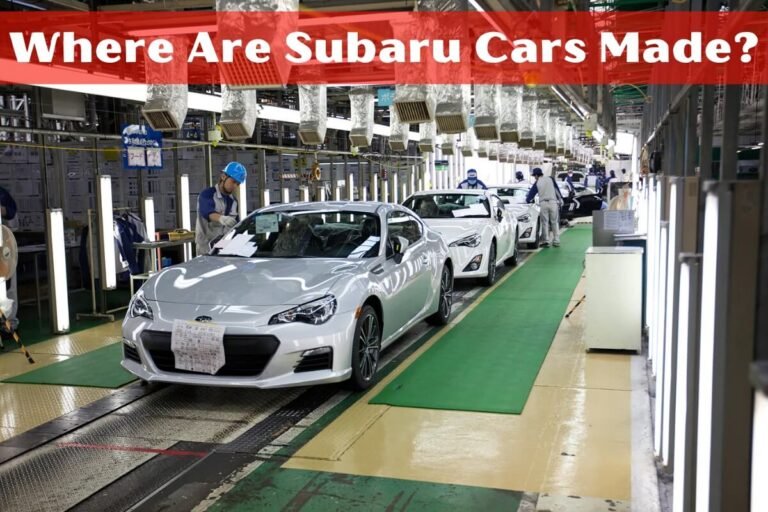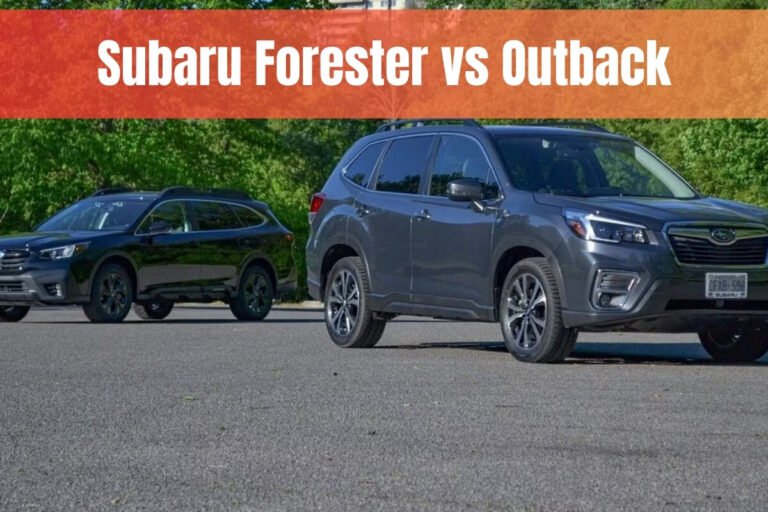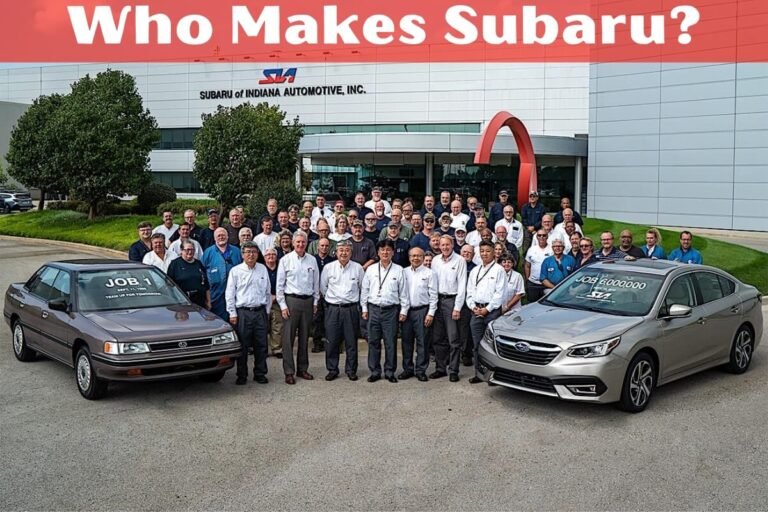Is Subaru Owned by Toyota? Unveiling the Truth
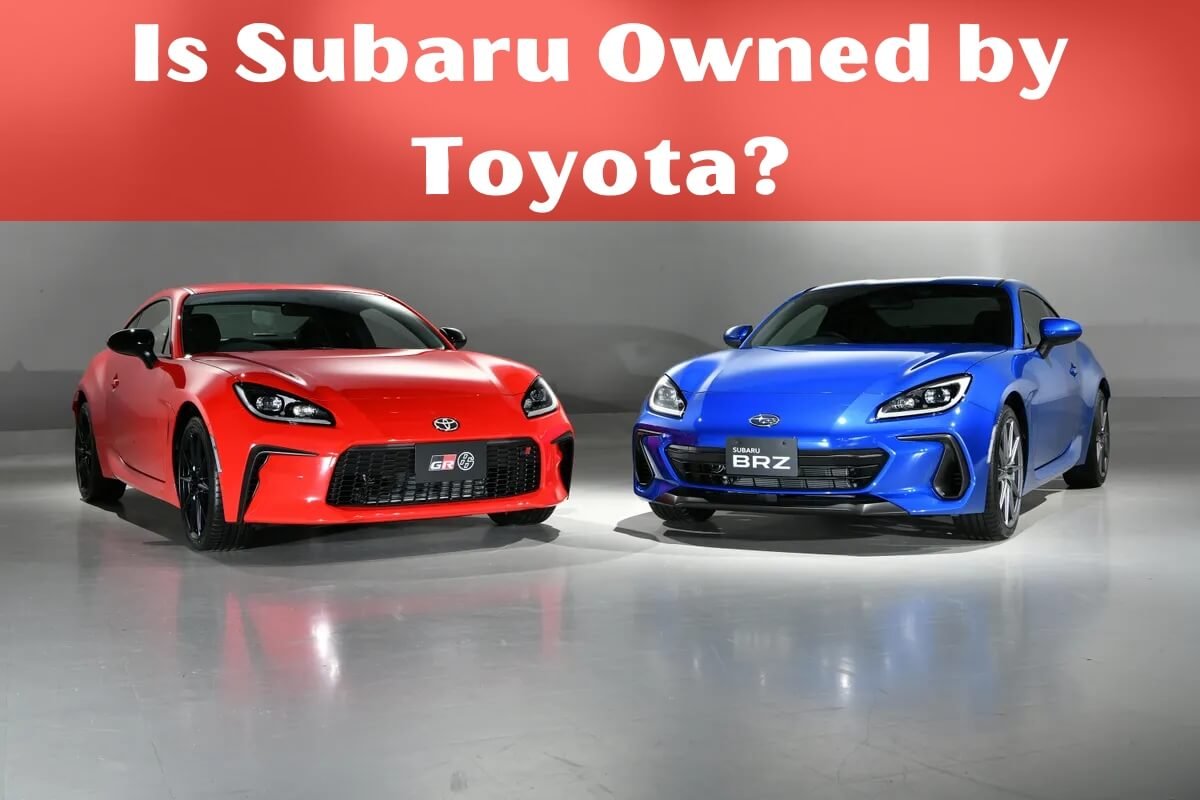
Subaru and Toyota are two renowned automakers that have captured the hearts and minds of car enthusiasts worldwide. While Subaru is celebrated for its rugged all-wheel-drive vehicles and boxer engines, Toyota is renowned for its commitment to innovation, reliability, and sustainability. These two Japanese automotive giants have a long-standing partnership that has fueled speculation about whether Subaru is owned by Toyota.
Is Subaru owned by Toyota? No, Subaru is not owned by Toyota, but Toyota holds a significant ownership stake in Subaru Corporation, making it the company’s largest shareholder.
The Subaru-Toyota partnership has been a game-changer in the automotive industry. Toyota’s significant ownership stake in Subaru has led to a fruitful collaboration, resulting in co-developed models and future projects. But how do these two giants work together while maintaining their unique brand identities? Let’s uncover the history of their partnership, the benefits of their collaboration, and what’s in store for their future projects.
The History of Subaru and Toyota’s Partnership
Subaru has a rich history that dates back to its origins as Fuji Heavy Industries. Originally an aircraft research laboratory, the company ventured into the automotive industry and became known as Nakajima Aircraft Company during World War II. After the war, the company underwent restructuring and emerged as Fuji Sangyo Co., Ltd., before being reorganized as Fuji Heavy Industries in the 1950s.
Toyota’s involvement with Subaru began in 2005 when it acquired a minority stake in Fuji Heavy Industries (FHI), the parent company of Subaru. This initial partnership paved the way for collaboration on various models, including the widely acclaimed Toyota 86 and Subaru BRZ sports cars.
Toyota’s Current Ownership Stake in Subaru
As of 2019, Toyota increased its ownership stake in Subaru Corporation (formerly FHI) from 16.83% to 20%. This strategic move solidified Toyota’s position as the largest single shareholder of Subaru. However, it’s important to note that despite this significant ownership stake, Subaru remains an independent company and is not fully owned by Toyota.
Benefits of the Subaru-Toyota Partnership
The partnership between Subaru and Toyota has proven beneficial for both companies. For Subaru, the alliance provides access to Toyota’s vast supplier network, enabling the acquisition of high-quality materials and resources. This access has played a crucial role in Subaru’s ability to maintain its reputation for durability and reliability.
Additionally, the collaboration has facilitated the sharing of technologies and expertise between the two companies. Subaru’s renowned Symmetrical All-Wheel Drive system and boxer engines have been instrumental in the development of several co-branded models, while Toyota’s expertise in electrification and autonomous driving technologies has opened new avenues for innovation.
Collaborative Models and Future Projects
One of the most notable collaborations between Subaru and Toyota is the development of the Toyota 86 and Subaru BRZ sports cars. These vehicles have garnered praise for their exceptional handling and performance, combining Subaru’s all-wheel-drive expertise with Toyota’s engineering prowess.
Looking ahead, the two companies have also joined forces to develop an all-electric SUV, slated for release in the mid-2020s. This project leverages Subaru’s all-wheel-drive technologies and Toyota’s expertise in vehicle electrification, promising an exciting and sustainable driving experience.
Maintaining Brand Identities
Despite their close partnership, Subaru and Toyota have remained committed to preserving their distinct brand identities. Subaru’s vehicles are known for their ruggedness, adventure-ready capabilities, and emphasis on safety features like the EyeSight Driver Assist Technology. On the other hand, Toyota’s brand is synonymous with reliability, innovation, and a diverse range of vehicles catering to various consumer segments.
Both companies have expressed their determination to maintain these unique qualities, ensuring that each brand continues to resonate with its loyal customer base while exploring new opportunities through collaboration.
Production Facilities and Global Presence
Subaru’s production facilities are located in Gunma Prefecture, Japan, and Lafayette, Indiana, in the United States. These strategically positioned manufacturing plants enable Subaru to serve both domestic and international markets effectively.
Toyota, on the other hand, boasts a truly global production footprint, with manufacturing facilities spanning multiple continents. This extensive network complements Subaru’s operations, allowing for efficient resource allocation and streamlined supply chain management.
Safety and Innovation: A Shared Focus
While Subaru and Toyota have their distinct brand identities, they share a common focus on safety and innovation. Subaru’s commitment to safety is exemplified by its award-winning EyeSight Driver Assist Technology and the standard inclusion of Symmetrical All-Wheel Drive in most of its models, ensuring superior traction and control.
Toyota, too, has been at the forefront of safety innovations, consistently earning top safety ratings from organizations like the Insurance Institute for Highway Safety (IIHS) and the National Highway Traffic Safety Administration (NHTSA). Moreover, Toyota’s investments in electrification and autonomous driving technologies demonstrate its dedication to sustainable mobility solutions.
Answering Common Questions
As the partnership between Subaru and Toyota continues to evolve, several common questions arise among car enthusiasts and potential buyers:
Does Subaru use Toyota parts in their vehicles?
While Subaru and Toyota collaborate on various projects, Subaru maintains its independent supply chain and manufacturing processes. However, due to their partnership, Subaru does have access to Toyota’s supplier network, which can facilitate the sourcing of certain materials and components.
Can Subaru owners get their vehicles serviced at Toyota dealerships?
No, Subaru owners cannot get their vehicles serviced at Toyota dealerships. Both brands maintain separate service networks, and it is recommended that Subaru owners visit authorized Subaru dealerships or service centers for maintenance and repairs.
Will Subaru eventually become a fully-owned subsidiary of Toyota?
As of now, there are no indications that Toyota plans to acquire a majority stake in Subaru Corporation. While Toyota holds a significant ownership stake, Subaru remains an independent company, and both brands have expressed their commitment to preserving their distinct identities and operations.
Conclusion
In conclusion, while Subaru and Toyota share a strong partnership, Subaru is not owned by Toyota. Toyota holds a 20% ownership stake in Subaru Corporation, making it the largest single shareholder, but Subaru remains an independent company. This partnership has yielded numerous benefits, including collaborative models, shared technologies, and access to resources.
Despite their collaboration, Subaru and Toyota have maintained their distinct brand identities, catering to different consumer preferences and prioritizing safety and innovation. As the automotive industry continues to evolve, the partnership between these two industry giants is poised to deliver exciting new developments, particularly in the realms of electrification and autonomous driving technologies.

